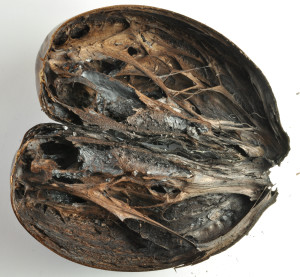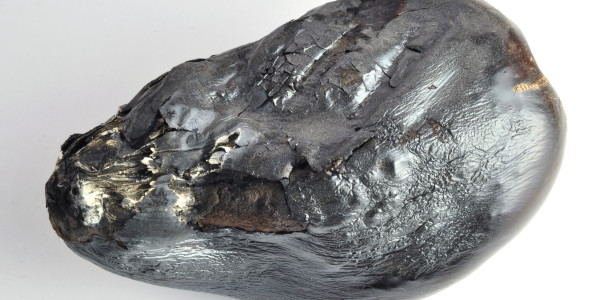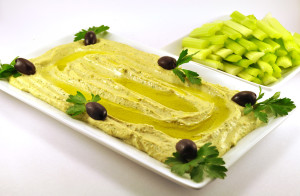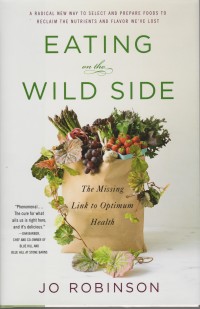Nearly everyone knows the saying, “A watched pot never boils.” It’s about expectation, impatience, and their odd interplay with the perception of time. I like to add, “An unwatched pot boils over,” and sometimes I’ll go with a few variations, including, “…boils away and burns,” or “…boils over, spills onto the stove, sticks, and burns.” It’s about the consequences of impatience and inattentiveness.
Cooking, especially cooking well, is all about three interrelated virtues: patience, presence, and—perhaps most important in the kitchen—attention. When I use the word “virtues,” I’m not moralizing (although I do think they’re very good). I’m using the word in its sense as a power (“by virtue of…”), a capacity to effect change, especially with positive results. I’m talking about a fundamental strategy that transcends ingredients, temperatures, techniques, and even time. Of course, everything matters to some degree, but unless we’re fully present, paying attention, and willing to wait for the right moment to act, only an unforeseeable accident could produce acceptable results. Willingness and inspiration are also important, but these are suggested by presence—if we’re not willing and inspired, it’s impossible to be truly present.
One afternoon, I had a hankering for some babaghanoush, the Middle Eastern dip made from fire-roasted eggplant and sesame paste. I happened to have all the ingredients, so I fired up the grill, set the eggplant on it, and began the other preparations. The phone rang; I answered. The little alarm on the clothes washer sounded, alerting me that the spin cycle was complete; I moved my clothes to the dryer. One thing led to another, and before too long (or perhaps I should say after too long) I could smell the smoke. What remained of my eggplant was nothing but a cautionary tale. An unwatched pot…
 I kept that blackened shell of what had been a perfect eggplant on my desk for several months—an oddly beautiful ebony relic of my inattentiveness—partly as a reminder, partly because I had in mind to photograph it, but mostly because I just couldn’t bear to unceremoniously throw it onto the compost pile after all it had been through. There was something defiantly noble about that eggplant’s charred remains, a silent statement about what happens when humans presume to multitask. Today, I finally took the shots, of the exterior, and then also of the interior, which I had only imagined until I carefully sawed the fragile husk in half and looked. Everything that once contained moisture had been hollowed out, and it took great care to transport the two halves without crushing the shell. Exquisite in its death-form, almost macabre, it would have seemed accusing if plants could do such a sentient thing.
I kept that blackened shell of what had been a perfect eggplant on my desk for several months—an oddly beautiful ebony relic of my inattentiveness—partly as a reminder, partly because I had in mind to photograph it, but mostly because I just couldn’t bear to unceremoniously throw it onto the compost pile after all it had been through. There was something defiantly noble about that eggplant’s charred remains, a silent statement about what happens when humans presume to multitask. Today, I finally took the shots, of the exterior, and then also of the interior, which I had only imagined until I carefully sawed the fragile husk in half and looked. Everything that once contained moisture had been hollowed out, and it took great care to transport the two halves without crushing the shell. Exquisite in its death-form, almost macabre, it would have seemed accusing if plants could do such a sentient thing.
I couldn’t possibly observe this jet-black art object without reflecting on both its stubborn beauty and my unconsciousness—that involuntary abandonment of fundamental strategy that afflicts my species more than any disease. How many times in a day? Too many to count, surely. Enough—if we allow ourselves to accept how little control we have over our own faculties—to cause despair, perhaps. But here’s the good part: as long as I’m alive, I can try again, to wait, to be present, to pay attention. I don’t even know if it’s truly possible to succeed in this, but if it is, it’s in the trying that it happens.
As many times as we miss the mark, new opportunities arise to try again. Some we’ll miss yet again, some we’ll manage to strike with at least a glancing blow, and with some we’ll be so spot on it will surprise us. I think that’s a primary reason I love cooking (aside from the fact that I’m starting to get pretty good at it, and people love me for it everywhere I go): the ever-present possibility of creating a genuine work of art, a thing of incomparable beauty. I’m humbled often, by failure to reach that height as well as by the fact that my most brilliant culinary triumphs and my most embarrassing disasters all wind up in the same place in the end (if you know what I mean).
It is only the possibility of watchfulness, of practicing the fundamental strategy of patience, presence and attention, that makes the difference between a life well lived and a wasted, burned-out eggplant of a life. Fortunately, as many as the missed opportunities are, so many are the fresh ones, each with the same bright promise. Promise of what? Glory. Nothing less than glory, in all its forms and guises. Well worth the effort, no doubt about it.
Of course I went and got another eggplant, and began again to make my babaghanoush. This time I did wait, I didn’t wander off, I paid attention. And as life repeatedly—though tacitly—asserts, it did come out right. A watched pot does boil. Cooking, like everything else, just takes patience, presence and attention.
.
.








Thank you for this post. I too, have charred an eggplant. I clicked on the photo because I knew it had to be interesting. It is beautiful.
Tehran, Iran was my home for many years and they make some excellent eggplant dishes. I am writing a Persian cookbook/memoir and you are an inspiration.
Best wishes,
Rebecca,
Loveland, CO
Thank YOU, Rebecca! Your book sounds very interesting—aside from the food (which I’m sure will interest me), people all over the world (and especially Americans) need to know that in Iran there are wonderful people who just want to enjoy life in peace the same way everyone does. Please let me know when it’s ready for purchase.